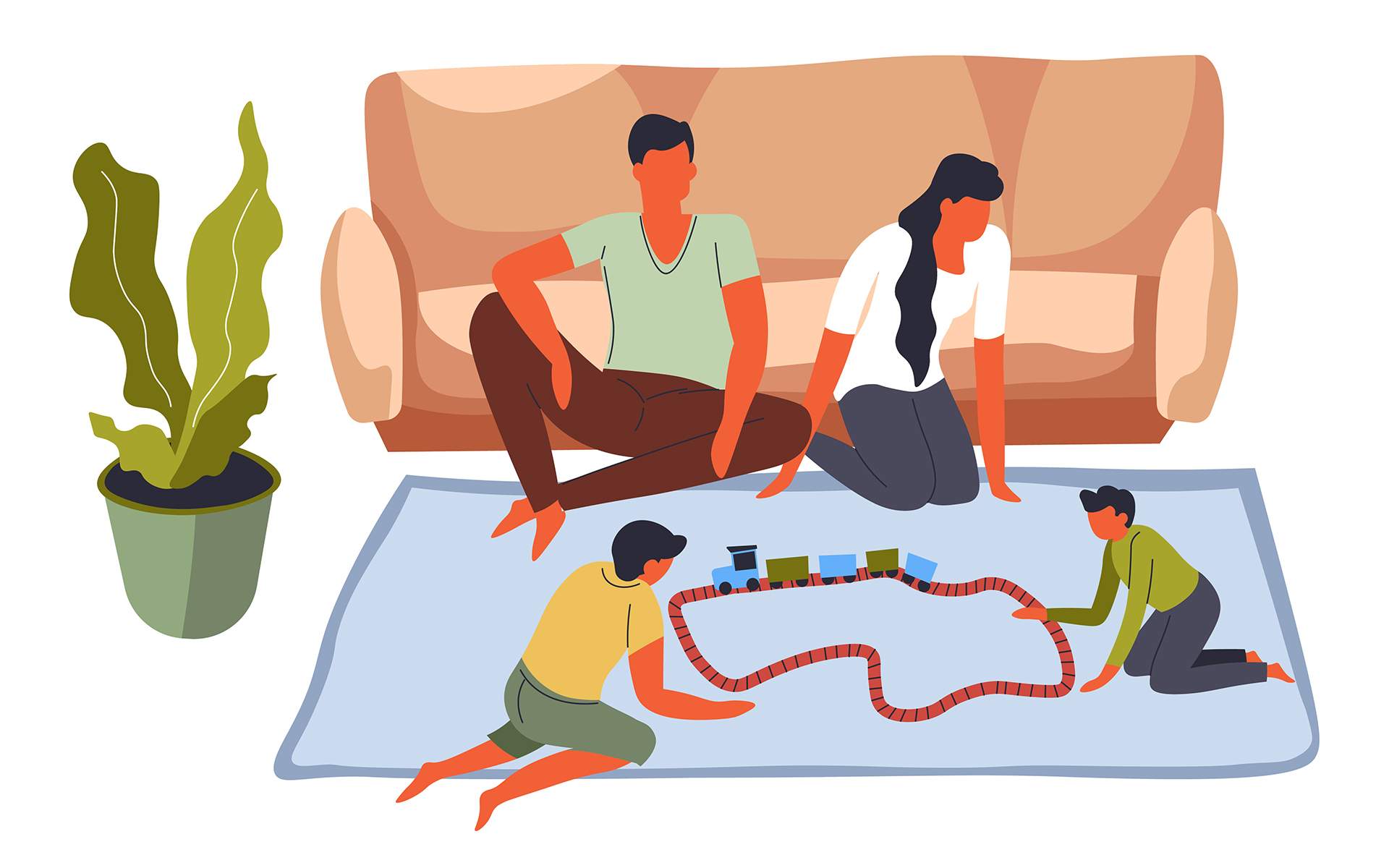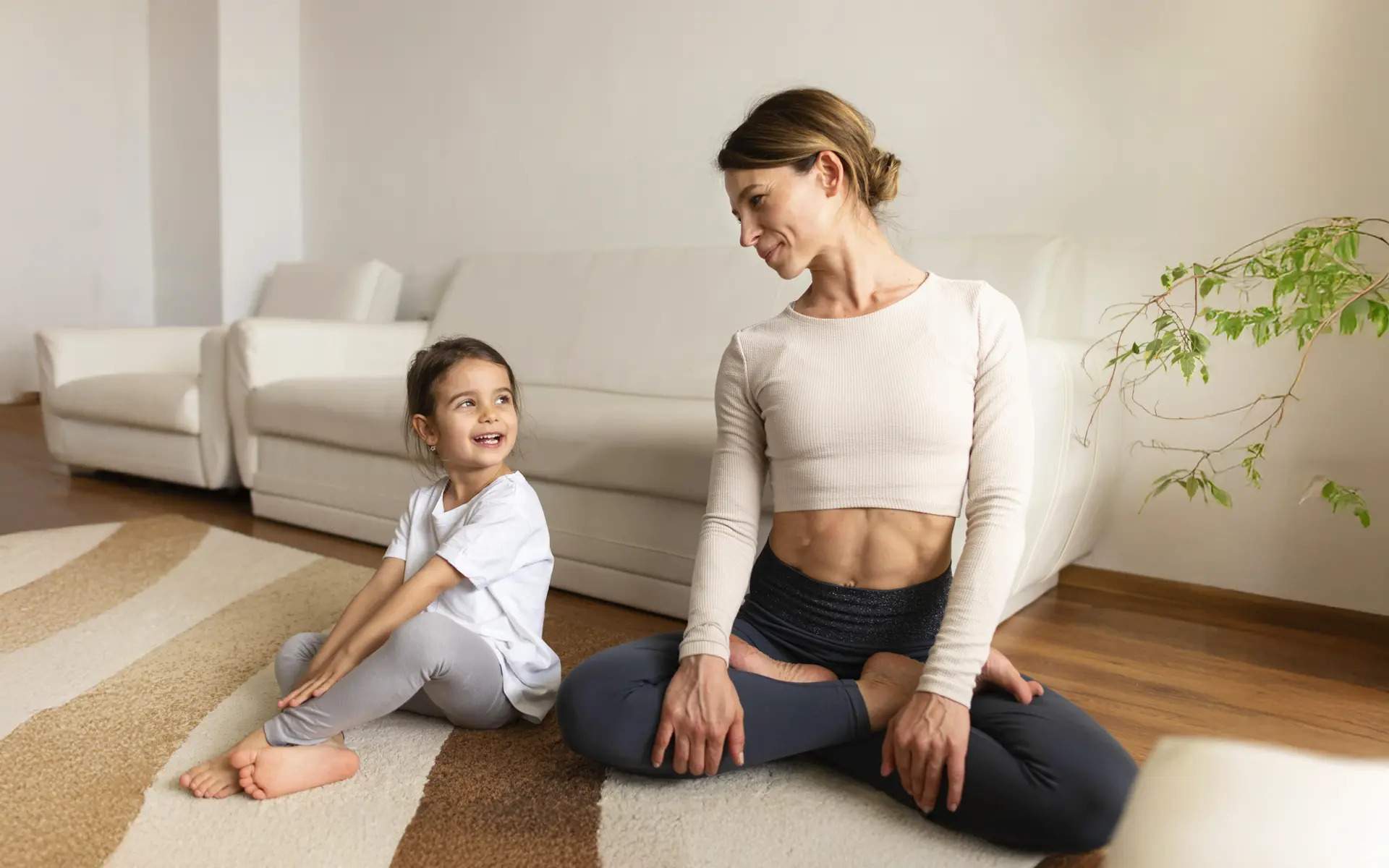Adam Avin, now 16, became passionate about teaching mindfulness and social-emotional learning skills when he was just nine years old. The Florida resident created a cartoon dog as a mascot, inventing songs, games, and other fun ways to teach these capabilities to more kids—and that was only the beginning. In this TED talk from 2019, Avin shares his work on getting mindfulness into schools, and his guiding principle that learning mindfulness can empower children and teenagers to own their power and make a big difference in the world.
Watch the video:
Abbreviated transcript:
Think Well to Be Well
When I was young, we would visit my great-grandparents once a week. I’d usually sit on the living room floor with toys, but sometimes I would just sit and talk with my great-grandpa Jack.
My great-grandpa was a very mindful person, a yogi at heart, even though he didn’t do any yoga. He taught me all of his positive mantras, like “Think well to be well.” He explained the mind can be a healer or a killer, that the mind can control the body. As a reminder to be kind to others, he’d say “Smile, and the world will smile with you,” and that kindness would come back to you.
He also talked a lot about gratitude and would encourage me to smile and say, “Thank you, Grandpa.” He believed that a positive attitude was one of the most important things in life. Once he wanted to help a woman find her lost car in a mall parking lot. She was super upset and crying, and had been walking in circles for an hour in the sun. He just wanted to cheer her up. So he said something funny, and they started laughing and then they couldn’t stop. Everyone around them started laughing too, but no one knew why.
Grandpa knew what scientists have since proven: that smiles are catchy and healing, even if we don’t feel like it. If we smile, our bodies get the signal from our brains and it becomes true. If we have compassion for ourselves, we have compassion for others. It’s like a chain reaction. A smile is a road to peace, and something that can change the world. My great-grandpa passed away years ago, but his lesson stuck with me.
I honor him by teaching his mindset to other kids. I believe that the key to ending violence is teaching kids when they’re young to be mindful and deal with emotions and stress. By teaching coping tools to kids today, we may prevent another suicide or a school shooting in the future. That’s why I created the Wuf Shanti Children’s Wellness Foundation.
A Pup with a Purpose
Wuf Shanti is a dog character that teaches mindfulness and social-emotional learning through fun and games, and promotes health, wellness, peace, and positivity. In fact, shanti means peace. We teach kids ages 3 to 10 years old relaxation and happiness techniques, including breathing exercises, mindful movements, positive thinking, and how to interact with others.
All of this is supported by science, which shows that mindfulness, social-emotional learning, yoga, and meditation can help reduce illness, increase focus, help kids do better both academically and athletically. And when you practice these things on a daily basis, they really do help with your mental and your physical health.
When I interviewed pediatrician Dr. Zhung Vo, he told me there’s a lot of science behind mindfulness. We can see how it affects our body, our physiology, our blood pressure, the way our brain functions. We can see how it affects our own breathing or muscle tension or heart rate. This sounds a lot like grandpa’s “think well to be well” mantra that became Wuf Shanti’s main message as well.
Teaching Mindfulness to Children
As Wuf Shanti, I traveled to schools and children’s hospitals to share our curriculum with kids. These hospital visits may have been the most emotional part for me. When Wuf would walk into the hospitals and see the kids with cancer, many of them were brought from treatment or hooked up to tubes. They’d all forget that for a few minutes, and would run up to us to hug them or dance or give a high five.
But the parents’ reactions were different. They would cry with the joy of seeing their kids happy and smiling. I felt sad seeing them like this, but happy how my being there was helping their lives, even for just a few minutes.
Wuf Grows Up
In the five years since we started Wuf Shanti, we’ve produced seven books, a free mobile app, signature games, like our gratitude and laughing games, and over a hundred videos, which run on local PBS stations, in schools and in children’s hospitals nationally. I also wrote the Wuf Shanti songs, working with my dad who also scored the music:
“A smile is a gift that makes you happy and free and makes the world a nicer place to be.
And if you smile to brighten everyone’s day, a smile will come back to you the same way.”
Even my little sister and her friends haven’t guessed yet that the voice singing in the Wuf Shanti songs is me, before my voice changed! I can’t sing it, or fit into the costume, anymore—we have to get other people to do it now—but neither my sister or her friends have ever looked around the room and said, “Where’s Adam?” not realizing that Wuf and I are never in the same place at the same time.
We know that Wuf Shanti videos, books, and the mobile app work to get our message out to kids in a way they can understand, because I first tested them on my sister and her friends who had just turned four at the time, and they enjoyed playing with the app while still learning basic life skills. Once my sister was crying and I told her that she had a choice to make: that she could continue to cry about whatever it was that she wanted, or she could choose to be happy for what she does have. And about five minutes later, I overheard her calming herself down by repeating “Think well, be well,” and “Peace begins with me,” while tapping her fingers to her thumb, which is one of the exercises that Wuf teaches. You don’t realize how much of an impact you’ve made until you’ve witnessed a five-year-old control her own temper tantrum and bring positivity and gratitude back into her life to keep her emotions under control.
It’s so important to teach kids the tools to stay healthy physically and mentally, to help them deal with stress and emotions in productive ways. So they can grow up to be less depressed and anxious teens and happier, peace solving, content adults. Anxiety, depression, bullying, anger, suicide, and homicide have doubled among kids and teens. In the past few years, suicide is the number two cause of death among minors. Seventy percent of teens, according to the New York Times, say mental health issues are the number one problem they face. Why is this? Is it because of social media, academic pressure, these scary events like school shootings? Because adults aren’t modeling the behavior? Maybe all of it. Adults should be making mental health a priority. And if they won’t, we have to, because cyber bullying is not okay. And killing people in schools, the grocery store, nightclubs, places of worship, or yoga studios must not become the norm.
Making a Difference
So what made me think that as a kid, I could do something? Nobody ever told me I couldn’t. If you believe in something, stand up, make yourself heard! We have to use our voice to make the world a better place to live in. If not us, then who? Look around. The world needs us right now. So I’m doing what I can to use my voice to make the world a better place, and to get Wuf Shanti’s message out to kids and into schools and hospitals.
Sure, I’ve been sad before, been anxious, been angry. But these mindful and social-emotional learning techniques have helped me have a purpose. Something positive to focus on has helped me, too. And I believe that these tools can help others. We need to reach as many kids, parents, healthcare practitioners, even government leaders as possible. So we can teach about mental health education and stopping the violence and stop the next kid from hurting himself, herself, or someone else.
It all starts with mindfulness and social-emotional learning. Some people think mindfulness is just all about deep breathing. We all know that breathing can’t change the world, right? But we all know that breathing is important. You need to breathe to live. Science has shown that if you breathe right, it can add two years of your life. For example, something as simple as breathing in for a count of four, holding it for a count of four and releasing it for a count of four. As you breathe in, you’ll feel calmer.
Teens can do this before a test and no one would even know they’re doing it, but mindfulness isn’t only about breathing. Mindfulness is about paying attention to what’s happening now, instead of focusing on yesterday, or tomorrow. Focusing on something other than the negative thoughts going on in our head, and if our mind wanders, learning how to bring it back.
Living Mindfully, Every Day
We can practice mindfulness by listening to a sound in the music that we like, like the drum beat. There are also mindful art activities or self-reflection activities. I like to listen to music while I’m golfing. It’s like meditation. It helps me find peace, which then spreads to my parents, my teachers and friends. Remember, it’s contagious. You have more influence than you know. But it takes practice to live mindfully so that when stressful things happen, and they will, you already have the tools to deal with it. Even practicing for just five minutes a day can help.
So if we can reach kids while they’re in school, they’ll be better prepared to face all the ups and downs in life. Social-emotional learning can help, too. It’s about coping with your emotions, self-awareness, self-regulation, self-compassion, and resilience, all of which are so empowering because no one controls them other than you. It’s also about communication, interacting with others and collaboration.
Read MoreWatching Trains: A Calming Breath Practice for Kids
Join author Susan B. Katz in a playful practice that helps children to focus on their breath, while their thoughts zoom on by.
Read More
Teaching Mindfulness to Children and Teens
Mindfulness is increasingly taking its place alongside math and social studies. Here’s the latest on mindfulness for kids and teens.
Read More










